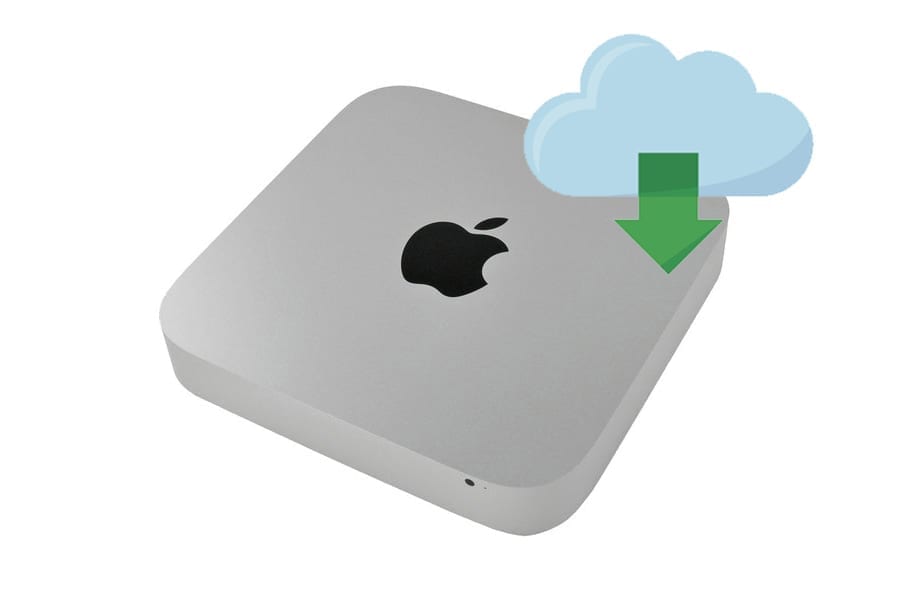How to accelerate software distribution? A clever is to make local copies of content previously downloaded, or if it has high demand, to have it pre-downloaded! This way a cache server will reduce effectively the bandwidth use of a network.
This series of posts are related on transforming this old Mac Mini from 2011 into a ‘new' and useful macOS Server 2011. If you are new to this topic, check out the first post. For more posts about this topic, please follow this link.
Table of Contents
How to Setup a Cache Server
App Store and iCloud Cache Server
Let's start with a storing copies of app updates from the App Store (macOS and iOS). This also servers for iCloud apps, which are safely encrypted in the macOS Server 2011 and no one (not even you) can have access to the content.
Click on the Apple icon, then System Preferences, then Share and finally Cache Content on the bottom left (the last option of the list). Click on the checkbox, give it a minute and the service will start right away.
But let's place it in a external hard drive, where we don't care if a mechanical failure eventually happens. It doesn't matter. This content will be the eventually replaced and it will be outdated. In this blog post, I talk about a “volatile external hard drive“, useful for this purpose.
To change the location, click on Options on the bottom right of the screen and then select a different hard drive. My volatile external hard drive is called Cohete HDD (which means ‘Rocket' in Spanish) and I will the cache files there. When it's done, click OK. The cache server will then move files and will continue to serve afterwards.
Testing
For this purpose, I let accumulate 60 apps on my iPhone and test if the cache server was doing its work.

After I uploaded them all, I checked if there was any information copied to the hard drive. Happy I was when I saw that there were almost 3GB of cached files! This means of course that the next person that downloads these same apps will rather use the cache files instead of downloading directly from the internet.

Next Chapter
Did you know that the macOS Server 2011 can store backup file created by Time Machine? On the next chapter, we will explore how to backup the macOS Server in case of a catastrophe (important!) and also to serve as backups for other Macs.
techZorro's Index of Content
Keep Reading!
- 007 – The outstanding Internet Protocol Layers and its hidden way to work
 Which protocols are used in internet? This episode talks about TCP/IP or Internet Protocol Layers required to work. Click here to listen.
Which protocols are used in internet? This episode talks about TCP/IP or Internet Protocol Layers required to work. Click here to listen. - 003 – Wi-Fi vs Ethernet, Convenience vs Reliability?
 When should a wired or wireless network be used? Let's discuss the differences between Wi-Fi and Ethernet. Click here to listen.
When should a wired or wireless network be used? Let's discuss the differences between Wi-Fi and Ethernet. Click here to listen. - The outstanding Internet Protocol Layers and its hidden way
 What is Internet Protocol or TCP/IP and how does it work? The Internet Protocol Layers are explained in this post. Click here to read.
What is Internet Protocol or TCP/IP and how does it work? The Internet Protocol Layers are explained in this post. Click here to read. - Ethernet vs Wi-Fi
 When should a wired or wireless network be used? This post presents a brief comparison of Ethernet vs Wi-Fi. Click here to read.
When should a wired or wireless network be used? This post presents a brief comparison of Ethernet vs Wi-Fi. Click here to read. - Optical Media for the macOS Server 2011
 Build your media entertainment solution with optimal media and a Mac Mini. CD, DVD and Blu-ray discs are covered. Click here to read more.
Build your media entertainment solution with optimal media and a Mac Mini. CD, DVD and Blu-ray discs are covered. Click here to read more.
You have reached this far!
Thank you for reading the blog post. Your comments and suggestions are welcomed. At the bottom of this page, leave a message or just say hi! The whole team of techZorro will appreciate it. Don't forget to share it on social media as well.
techZorro’s Index of Content
Click on the following link to browse likewise content in the blog in techZorro. This index will help you see what you are looking for in a bird’s eye view.
techZorro's Newsletter!
If you enjoyed this blog post, please subscribe to techZorro’s newsletter so you don’t miss any future blog posts!








